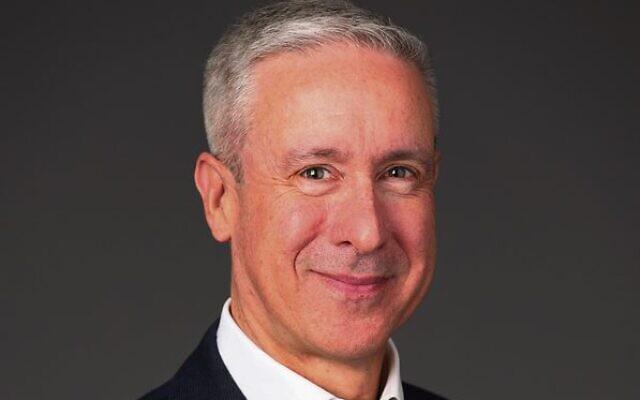Jewish responses to a virtual world
Interviewed from Jerusalem, the rabbi posits that in the online era, Jewish thought leaders need to work "from A to Z, reappraising the direction in which we are currently headed".
WE live in an age in which lashon hara (hurtful language) thrives on social media, historical and societal falsehoods are freely accessible on the web, and privacy and financial security have become luxuries as we try to stay one step ahead of cookies, trackers and scammers.
So what does Judaism have to say about all of that? It’s a thorny question that Rabbi Dr Danny Schiff grapples with in his new book, Judaism in a Digital Age: An Ancient Tradition Confronts a Transformative Era, launched earlier this year. An Australian launch is due in August when the locally born and raised rabbi visits. Meanwhile, he will lead a four-part webinar series for Temple Beth Israel, beginning on June 22.
Rabbi Schiff, a pioneer of Australian Progressive Zionist youth movement Netzer, now divides his time between Jerusalem and the US, where he is Scholar of the Jewish Federation of Greater Pittsburgh.
Interviewed from Jerusalem, the rabbi posits that in the online era, Jewish thought leaders need to work “from A to Z, reappraising the direction in which we are currently headed”.
He believes the challenges of technology will test Judaism at its core, as questions arise on how to deal Jewishly with pivotal threats. Perhaps the most daunting is the growth of artificial intelligence to where it could lead to the extinction of humanity.
Rabbi Schiff contrasts the digital age, whose beginnings he traces to around 1990, with the previous age of modernity, in which the 19th-century creation of nation-states and citizenship drew Jews out of Europe’s ghettos and into the public square of civic equality and discourse; during which Jewish peoplehood was transformed into “Jewish religion”, alongside other faiths.
“Jews spent much of modernity focused on two projects. One was the whole idea of trying to adapt to our newfound circumstances of being full citizens of surrounding society. And then trying to adopt the ideas of the Enlightenment through biblical criticism or history, psychology – all the new fields that opened up – and incorporate them into our thinking about Judaism,” he reflected.
Liberal Judaism grew out of these new freedoms, and consequently the end of the modern era is having its greatest impact on non-Orthodox Jewish streams. But Orthodox Judaism is not immune from these challenges, he argues.
“Let me be clear about why I tackle Reform and Conservative Judaism in the book and not other forms of Judaism. I do that simply because I have great familiarity with those parts of the Jewish spectrum. And I think I have some authority and credibility to speak about what’s going on.
“But one shouldn’t misunderstand the implications of the digital age – they will be broadly felt across the Jewish spectrum, in every part of Jewish life, except for those Jewish communities that have really tried to place themselves away from the impacts of the surrounding world,” he said.
Progressive Judaism’s embrace of online worship during the pandemic, and as an ongoing option alongside in-person attendance in shule, has been celebrated in those communities, but it is a response to modernity, not a true response by Judaism to the digital age.
While Rabbi Schiff is confident synagogue life will survive, he says Jewish communities must now leverage the comfort and confidence they enjoy in societies such as Australia and North America to remain relevant in the digital epoch. “It behoves us to really think through what that calls upon us to say and do.”
Judaism must find responses to what he calls the “net negative” of social media. “We’ve rushed to embrace it, but if the technology is deleterious – if it allows the spread of lashon hara, where Judaism has a lot to say, why isn’t there a distinctive Jewish approach to social media?”
More broadly, Rabbi Schiff wants to see Jewish perspectives to the isolation inherent in communicating virtually and to the explosion in single-person households. “People are asking themselves, ‘If I can do everything I want to do with life without having to compromise with somebody else, then why would I?’ Is that in line with classical Jewish thinking? If not, then is it something we should now take on as being a positive or take a stand against?
“I’m not asking these questions with a particular agenda. I’m simply pointing out that this is a dramatic shift in the way that people live. Judaism needs to think that through and to have a thoughtful response.”
A Temple Beth Israel webinar, “Judaism in a Digital Age” with Rabbi Dr Danny Schiff, will be held Thursdays beginning June 22 at 7.30pm. For further information, visit tbi.org.au.
Peter Kohn is The AJN senior journalist, Melbourne.
‘ If social media allows the spread of lashon hara, where Judaism has a lot to say, why isn’t there a distinctive Jewish approach? ‘
– Rabbi Dr Danny Schiff


comments